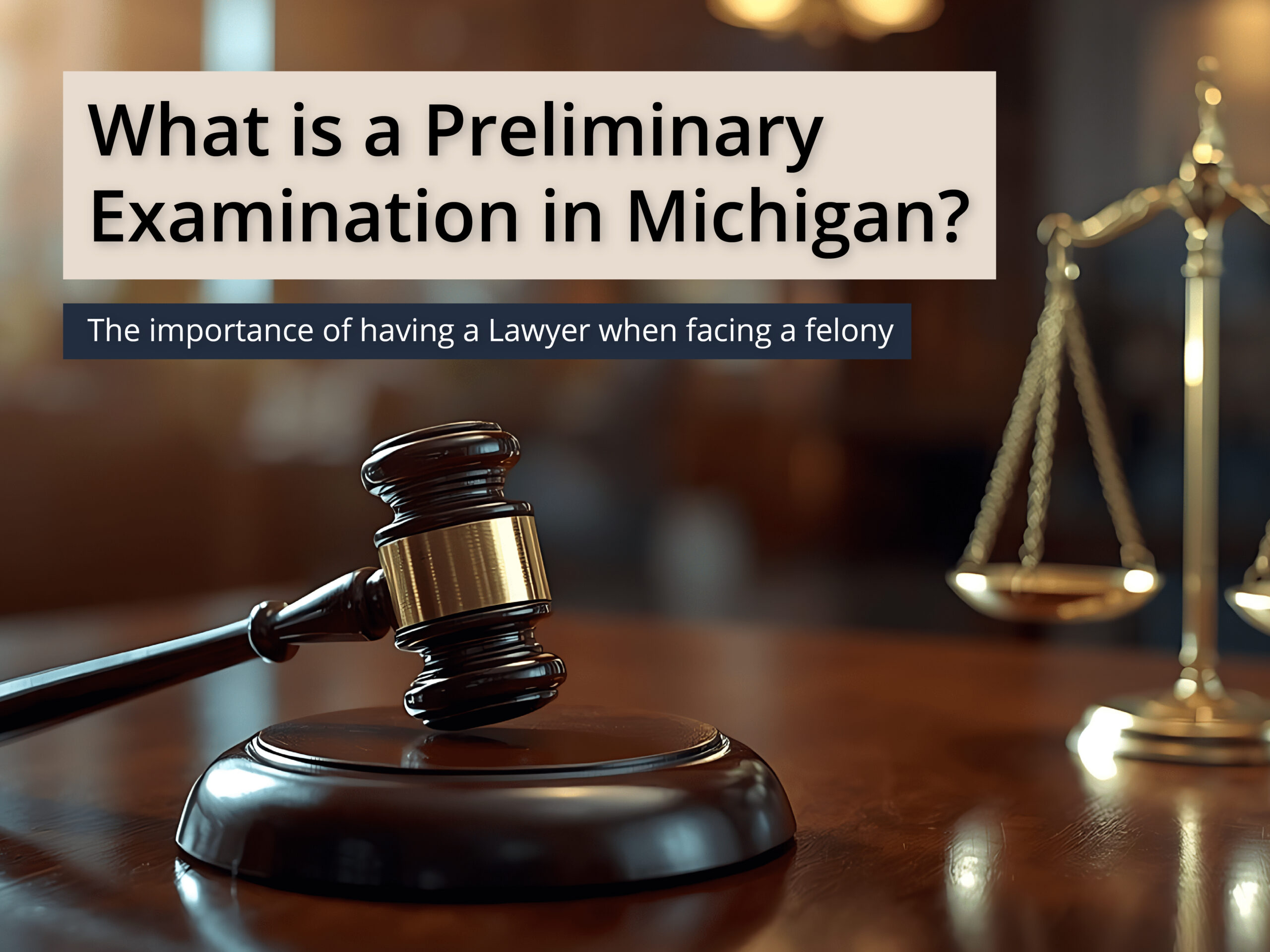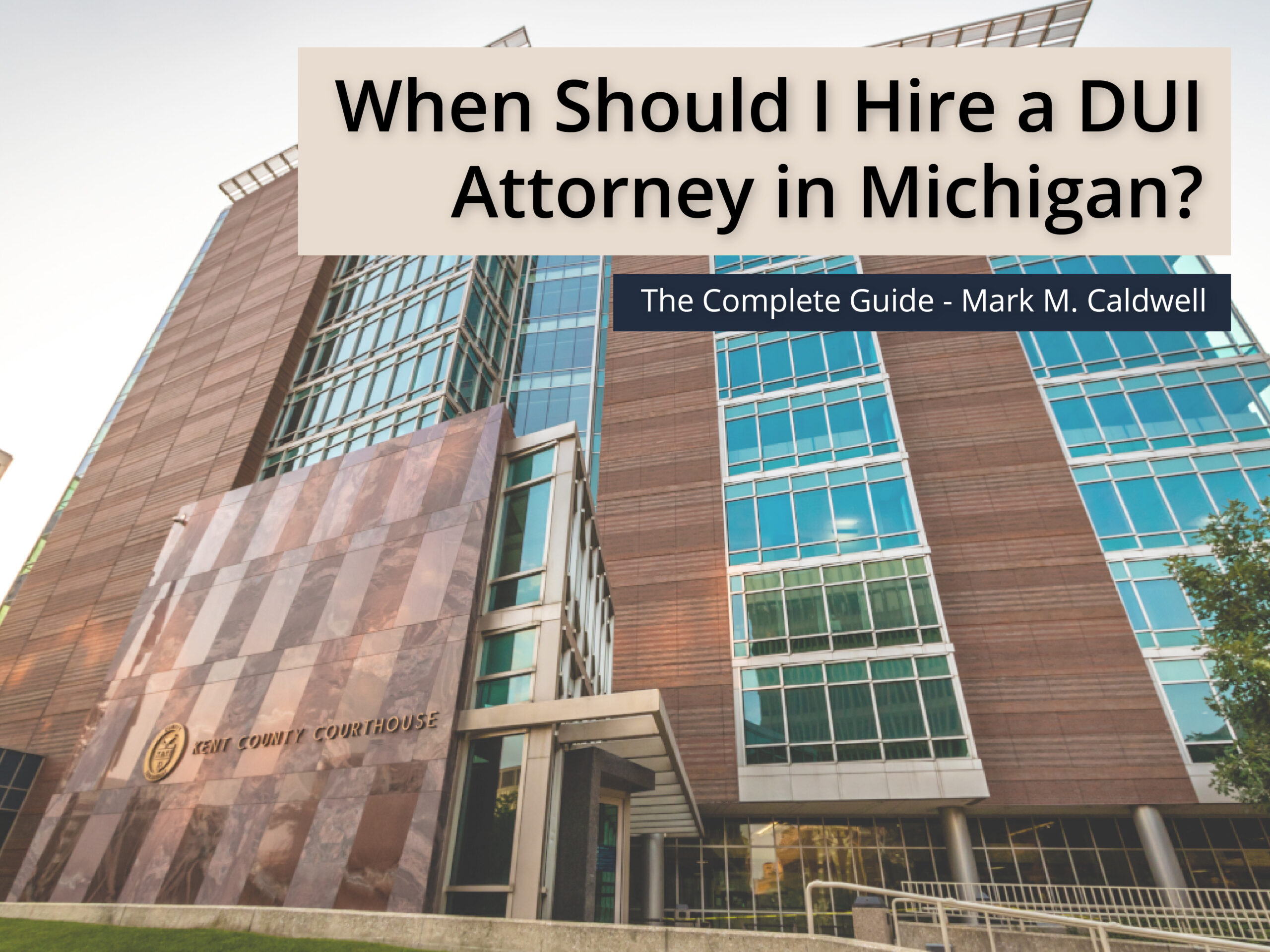Understanding the Preliminary Examination in Michigan
If you’ve been charged with a felony in Michigan, one of the first steps in the court process is the preliminary examination (often called a “prelim”). This hearing is a critical stage where the prosecutor must show that enough evidence exists to justify moving forward with felony charges.
Knowing what happens at a preliminary examination and having an experienced Michigan criminal defense attorney by your side can make the difference between your case moving forward or being dismissed.
Why the Preliminary Examination Matters
The preliminary examination serves two main purposes:
- Protecting defendants from weak or unsupported charges.
- Establishing probable cause that a crime was committed and that you are the one who committed it.
If the judge decides there isn’t sufficient evidence, the charges may be dismissed or reduced. In some cases, charges can be dropped before the trial even begins.
For context on how this fits into the broader process, see What is the Court Process for an OWI in Michigan?
When Does a Preliminary Examination Occur?
In Michigan, the preliminary examination is typically scheduled within 14 days after the arraignment on felony charges. Common felony charges that involve prelims include:
- Serious DUI/OWI cases involving injury or repeat offenses (Understanding DUI and OWI offenses in Michigan).
- Felony assault or domestic violence cases (Domestic Violence Defense Attorney).
- Felony traffic crimes, including OWI causing injury or death (OWI causing injury or death guide).
What Happens at a Preliminary Examination?
At the prelim, the prosecutor must present enough evidence to convince the judge there’s “probable cause.” This standard is lower than “beyond a reasonable doubt,” but still requires a factual basis.
Key features of the hearing:
- Witness testimony: Police officers, investigators, or victims may testify.
- Cross-examination: Your attorney can question these witnesses, challenge their credibility, and test the strength of the case.
- Legal arguments: The defense can argue a lack of evidence, improper procedure, or constitutional violations.
This is also a valuable opportunity for your lawyer to evaluate the prosecution’s strategy, lock in witness testimony, and begin shaping defenses.
Possible Outcomes of a Preliminary Examination
The judge has several options after hearing the evidence:
- Bind over to circuit court: The case proceeds to trial.
- Dismiss charges: If evidence is insufficient, charges can be dropped.
- Reduce charges: The judge may allow lesser charges (sometimes reducing a felony to a misdemeanor).
- Plea negotiations: Some cases resolve during or before the prelim through plea deals.
For related defense strategies, see What Is the Best Defense Against a DUI?
Why Having a Lawyer at the Prelim Is Critical
Even though the preliminary examination is not a trial, it plays a major role in your defense strategy. An experienced defense attorney can:
- Challenge probable cause and push for dismissal.
- Expose weaknesses in the prosecution’s case early on.
- Negotiate reductions before trial risks increase.
- Preserve evidence and testimony for later use at trial.
If you’ve been charged with a DUI, OWI, or related felony offense, you need a skilled Grand Rapids OWI/DUI attorney who understands how to handle preliminary examinations.
How Preliminary Examinations Affect DUI/OWI Cases
Not all DUI/OWI cases involve a prelim; many are misdemeanors. But when DUI charges involve injury, repeat offenses, or child endangerment, they may be charged as felonies requiring a preliminary examination.
Examples include:
- OWI Causing Injury or Death (Read More Here)
- DUI with a Minor in the Vehicle (Michigan child endangerment laws)
- Felony OWI for repeat offenders (How to Navigate a First-Time DUI vs. Repeat Offenses)
Preliminary Examination vs. Grand Jury
In some states, felony charges are decided by a grand jury. Michigan uses preliminary examinations instead (with few exceptions). Unlike grand juries, which are one-sided, prelims allow defense attorneys to question witnesses and build a record.
This makes the prelim a powerful tool for the defense, especially in complex cases such as DUI with injury or probation violations (Probation violation lawyer legal advice).
FAQs About Michigan Preliminary Examinations
- Can I waive a preliminary examination?
Yes, but this should only be done with advice from your lawyer. Sometimes it’s strategic to waive if you’re pursuing a plea or don’t want to expose witnesses early.
- What happens if charges are dismissed at a prelim?
The case is over unless the prosecutor refiles. In some cases, the dismissal is permanent.
- Do misdemeanors have a preliminary examination?
No, only felonies require prelims. Misdemeanor DUI/OWI cases skip this step.
- How should I prepare?
A: Work closely with your defense lawyer; they will prepare evidence, identify witnesses, and anticipate cross-examination.
See: Everything You Need to Know About Finding the Best DUI Lawyer in Michigan.
Final Thoughts
The preliminary examination in Michigan is one of the most important steps in a felony case. It’s your chance to challenge the prosecution’s evidence, expose weaknesses, and sometimes end the case before trial even begins. If you or a loved one is facing a felony DUI/OWI or other criminal charge, don’t wait. Contact an experienced criminal defense lawyer in Grand Rapids who understands how to navigate the Michigan prelim process and protect your future.
For more information, see our Legal Resources or schedule a consultation today.



